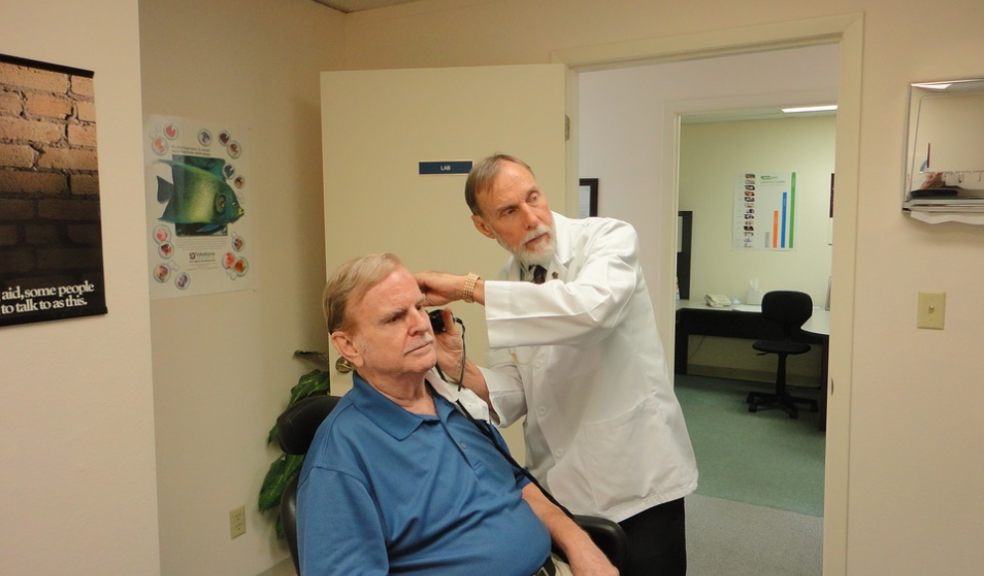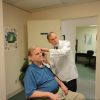
6 Useful Tips To Remember When Traveling With A Deaf Person
You’re traveling to a new country and everything is going well for you, up to the point when misunderstandings occur due to your companion’s special needs, so what should you do?. There’s no denying that traveling can be especially difficult for deaf people, with everyone being too occupied with their personal business to recognize the needs of a deaf person when they see one. For that reason, you might want to step in and be your friend’s guide while traveling. To achieve this, here are 6 useful tips that you should keep in mind.
1. Maintain Eye Contact
The eyes are the windows to the soul; this is a pretty important aspect of your deaf companion’s life. Generally speaking, deaf people like and cherish eye contact. It makes it clear for them whether or not the other person is talking to them, shows that they are attentive to their needs, and it is overall one of the most important elements in communication since eye contact can be used as a tool to convey what words can’t. Make sure that you’re not wearing sunglasses as you speak to your deaf friend. If someone else is doing so, you’ll need to tell them that this can impair communication with your deaf friend.
2. Use a Normal Pace when Speaking
Another factor that is particularly important for communication with a deaf person is the pace of your speech. Providing that you already maintain eye contact and are not wearing glasses, a deaf person will be able to focus on your pace of speech. Don’t put too much thought into it; simply speak at a normal pace that is not too fast or too slow. You should also avoid shouting, as it will significantly affect your speech, which won’t make the blind person able to make out what you’re saying.
3. Make Sure That the Staff Know Your Companion’s Needs
When on an airplane, it is very important to explain to the staff that your friend has special needs. The aircrew is experienced and has probably served travelers with hearing impairments before, so they’ll be able to communicate with your friend at a natural, moderate pace. In case there’s an emergency, make sure that the people around you are aware that your companion is hard of hearing. If you have a particularly long flight ahead of you, make sure there’s a source of entertainment both for you and your companion. A helpful portable TV speaker, for example, will be optimal for your companion if they enjoy watching TV. Your friend won’t need to blare the sound when watching a movie, as this tool will produce quality audio output at a moderate level.
4. Have Plenty of Change
If you’re going to move around a lot in a foreign country, you’re bound to ride the bus. Usually, bus drivers can be very busy and distracted, so they won’t take note of your friend’s specific needs, even if you try to explain it to them.

To avoid any unpleasantries with bus drivers, make sure that you always have enough spare change to board the bus with your deaf friend. Knowing the exact route and having a map wouldn’t hurt either in case you get lost, which happens more often than not.
5. Give Your Companion Your Undivided Attention
A deaf person will have no indicator that you’re trying to communicate if you’re not facing them, making eye contact, or expressing that with your body language. Therefore, you must start facing them before speaking to them. They should also be able to see all your features in order to read your lips and follow the conversation whenever they miss hearing something. While it might be difficult not to, try as much as you can not to turn your head to the side or completely, as that will certainly disrupt the flow of the conversation.
6. Your Mouth Must be Always Visible When Speaking
If you have a beard or tend to cover your mouth during conversations, your friend will likely be unable to lip-read you. While some deaf people rely on what they’re able to hear, others can only understand conversations through lip-reading. You must consider that when going on tours. Your deaf friend must be in the front or as close to the tour guide as possible so they can lip read them.
Socializing is important for every human being, and having trouble communicating can have a drastically negative impact on people with hearing disabilities. Make sure that you’re pronouncing your words correctly when speaking to your deaf friend and keep your pace steady. Traveling should be fun both for you and your friend, and with the multiple tools and technological innovations out there, deaf people will be able to enjoy all aspects of travel just as much as you do!



















